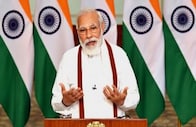Mondelez, which makes Cadbury Bournvita has dismissed claims made by social media influencer Revant Himatsingka that Bournvita is unhealthy due to its high sugar content. However, nutritionists, doctors and consumers have questioned their actual health benefits, claiming the high sugar content is not healthy, especially for children.
Recommended Articles
View All
"As we continued to witness an abnormal and unusual amount of traction on the post, we were constrained to take legal recourse to avoid misinformation," the company said.
While the influencer took down the video – which garnered over 12 million views – this video, Bournvita’s clarification and legal action on the influencer has sparked a social media debate over the health benefits of malt-based drinks.
Also Read: National Health Authority invites participation in National Health Claims Exchange sandbox
Currently, India is the largest market for these malt-based drinks and the industry is pegged at around Rs 11,000 crore, largely dominated by Horlicks, Boost, Bournvita, Complan, among others.
While these drinks claim to boost immunity, provide micronutrients and help in development of children, pediatricians say the high sugar level outweighs these benefits.
Bournvita for instance contains 37grams of sugar per 100gm, while Complan has 21.8gm of sugar, Boost has 9.5gm of added sugar and Horlicks has 13.5 grams.
Bournvita, in a statement, said every serve of 20 gm of Bournvita has 7.5 grams of added sugar, which is approximately one and a half teaspoons. This is much less than the daily recommended intake limits of sugar for children.
"Bournvita contains nutrients namely Vitamin A, C, D, B12, Iron, Zinc, Copper and Selenium which supports the immune system. These have been part of our formulation and we have always called out "Helps with healthy functioning of the immune system" on the back of our pack for several years (even before the Covid-19 pandemic)," it added.
Hindustan Unilever, which is the market leader for malt-based drinks in the country told CNBC TV18 that it uses sugar responsibly, whilst matching technical needs and consumer preferences.
"In a country that continues to face the challenges of micro and macronutrient deficiencies in people, it is important to strike a balance between nutrient fortification and palatability. We are conscious of our responsibilities towards consumers and are committed to providing safe and quality products that adhere to Unilever’s Highest Nutritional Standards," it said.
It added that Horlicks is clinically proven to help improve the health and nutritional status of school children, while Boost is fortified with 17 essential vitamins and minerals. And that, while 90 percent of its Horlicks portfolio has less than one teaspoon of added sugar per serve and less than 2g added sugar/100 ml, as a prepared beverage, a recommended per serve (20g) of Boost contains only 1.9g of added sugar.
While there are no legally prescribed standards of sugar consumption among children above the age of 2, doctors suggest that a child must not consumer more than 25 grams of added sugar per day.
Pediatrician Dr Jagruti Sanghvi said that consuming added sugar could cause craving, irritability, fatigue, etc among children and that they don’t require these sugars for their daily energy.
"Most of these health drinks all have added sugars, and none of these actually improve health of child. All they do is increase palatability of the milk and parents often give these to children so they consumer milk owing to the palatability," Sanghvi added.
She further said that while Micronutrient deficiency is an important problem that India faces, the presence of micronutrients such as Zinc, etc in these drinks don’t actually take care of the overall micronutrient requirement of a child and that consuming more sugar than required in the process outweighs any benefit.
This controversy has also brought to light the requirement of regulations in the country that either control ingredient levels, mandate adequate disclosures or regulate claims advertised by brands selling ultra-processed foods.
"There needs to be a definition of unhealthy food and what comes under that should be barred from advertisement. I’m not saying restrict sale or production, but they shouldnt be allowed to advertise. These claims can constitute as misleading," said Arun Gupta, a Pediatrician and Convener of the Nutrition Advocacy in Public Interest (NAPi).
India’s food regulator Food Safety and Standards Authority of India (FSSAI) has been working on front of pack labelling guidelines to reduce consumption of junk foods. While the regulator published draft guidelines in 2022 recommending foods high in sugar, sodium and trans fat have adequate, prominent disclosures of the front of the pack, these regulations are yet to be implemented.
Experts and scientists say implementation of these guidelines would be an important first step in creating consumer awareness over conscious consumption of ultra-processed food.
First Published: Apr 18, 2023 10:18 PM IST
Check out our in-depth Market Coverage, Business News & get real-time Stock Market Updates on CNBC-TV18. Also, Watch our channels CNBC-TV18, CNBC Awaaz and CNBC Bajar Live on-the-go!


